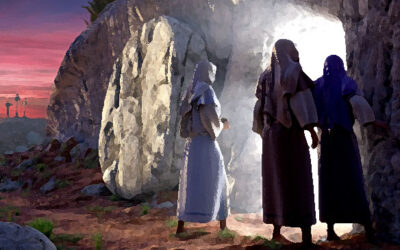“Rejoice in the Lord always… and again I say, rejoice” (Phil. 4:4)! He says he has learned to be content.
All of us face challenging and difficult circumstances. So let us look closely at Paul’s experience and see if we can discover the source of his contentedness.
Contentment does not mean having a passive, laid-back attitude that just accepts whatever happens without a whimper of protest. Contentment does not mean being indifferent as to whether or not your circumstances will ever improve. Contentment does not mean settling for less than you are capable of.
Nor is contentment a spiritual quality reserved for those who have unusually strong faith. Paul was not content just because he was Paul. When he explains his secret he does not reveal anything super-spiritual or super-human about it. That place of happy contentment is achievable by anyone through very ordinary means: “I have learned… to be content.”
No one is naturally content when faced with difficult circumstances. Contentment must be learned, and the only way to learn it is to go through some things that test it. Paul learned to be content. That means I can learn contentment, and so can you.
The Greek word for “content” here is only used once in the entire Bible. It means a sufficiency in one’s self, being strong enough or possessing enough to need no aid or support. It is the ability to live independently of external circumstances. Elsewhere Paul has confirmed that he is not sufficient in himself, but his sufficiency is of God (2 Cor. 3:5). And he has just told the Philippians that “we rejoice in Christ Jesus and have no confidence in the flesh” (Phil. 3:3). So how can we reconcile that with this “self-sufficiency” he now speaks of?
Perhaps it can be explained in this way: there is a sufficiency within us that does not come from us. It is “in me” but it is not “from me.” I am sustained on the inside by something that supplies me from the outside! And this sufficiency is so complete that I can live independently of my circumstances – whether they are good or bad!
That is a powerful position to be in. But that kind of contentment is something that must be learned. We need to learn the kind of spiritual contentment that is completely dependent on Christ – not on Christians! How do we learn this lesson? Paul learned it when “everyone in Asia” deserted him (2 Tim. 1:15). This would be a serious blow to most people, but Paul had learned something! Have we learned it?
“I know both how to be abased, and I know how to abound.” Both! Learning contentment is not just figuring out how to make do with little, it is also making do with a lot. How we respond to having too little says something about us, but how we respond to having too much says something also. “I know both,” says Paul, whether full or hungry, whether abounding or suffering need. He is independent of his circumstances. He is the same, whether he has a lot or whether he has a little.
Regardless of what state you find yourself in today, you too can do “all things through Christ” Who strengthens you. The greater your deficiency, the greater His sufficiency. In your weakness His strength is more clearly revealed. Even in your most difficult moments you will find in Him a rich storehouse of spiritual sufficiency that exceeds all your expectations. There are no quick fixes, easy answers, or instant solutions to all your problems – but there is a Person Who lives in you, One Who has already proven Himself to be Sufficient for Anything and Master of Everything. Let Him be Enough.












